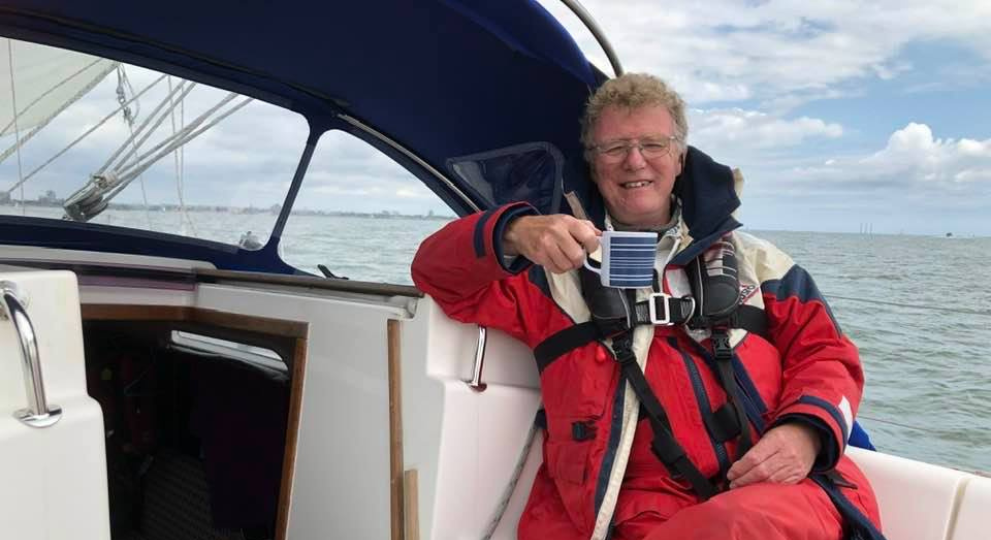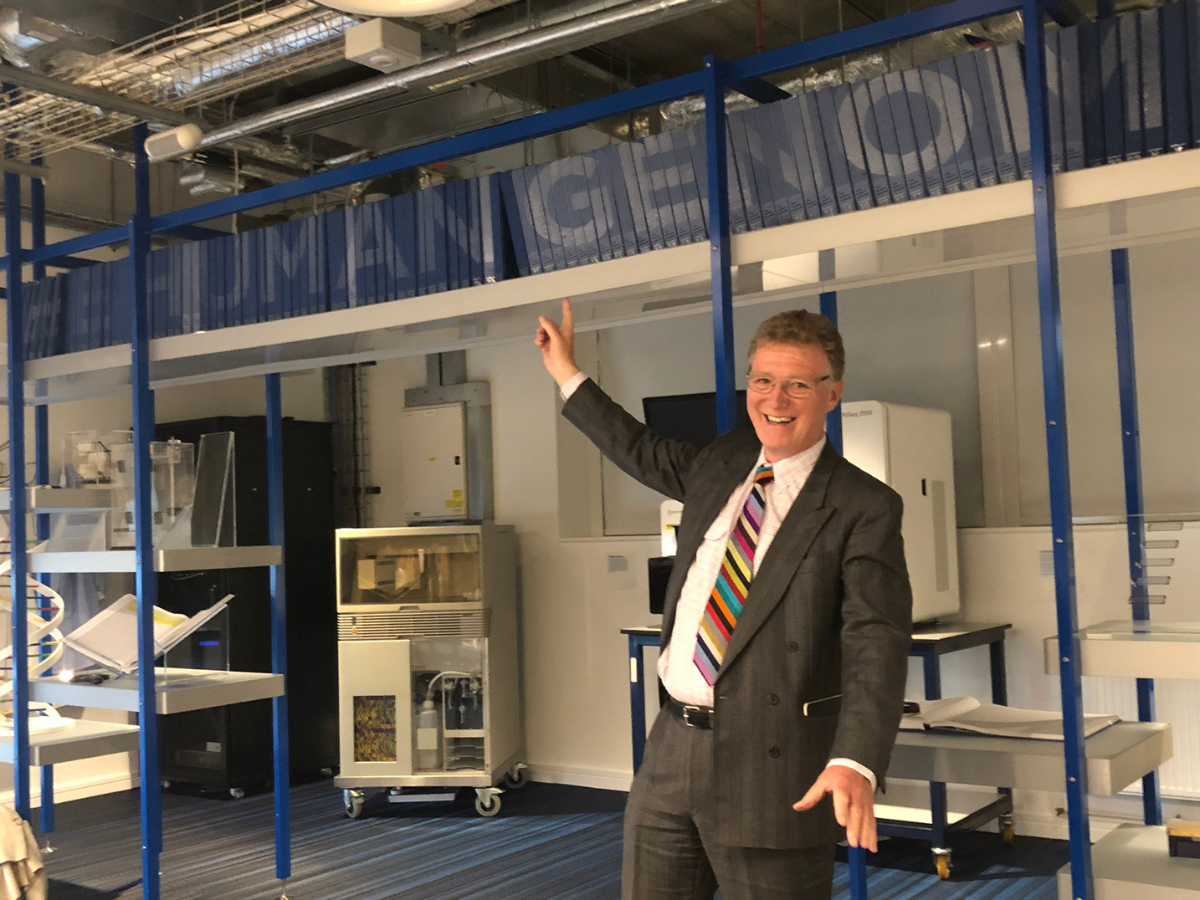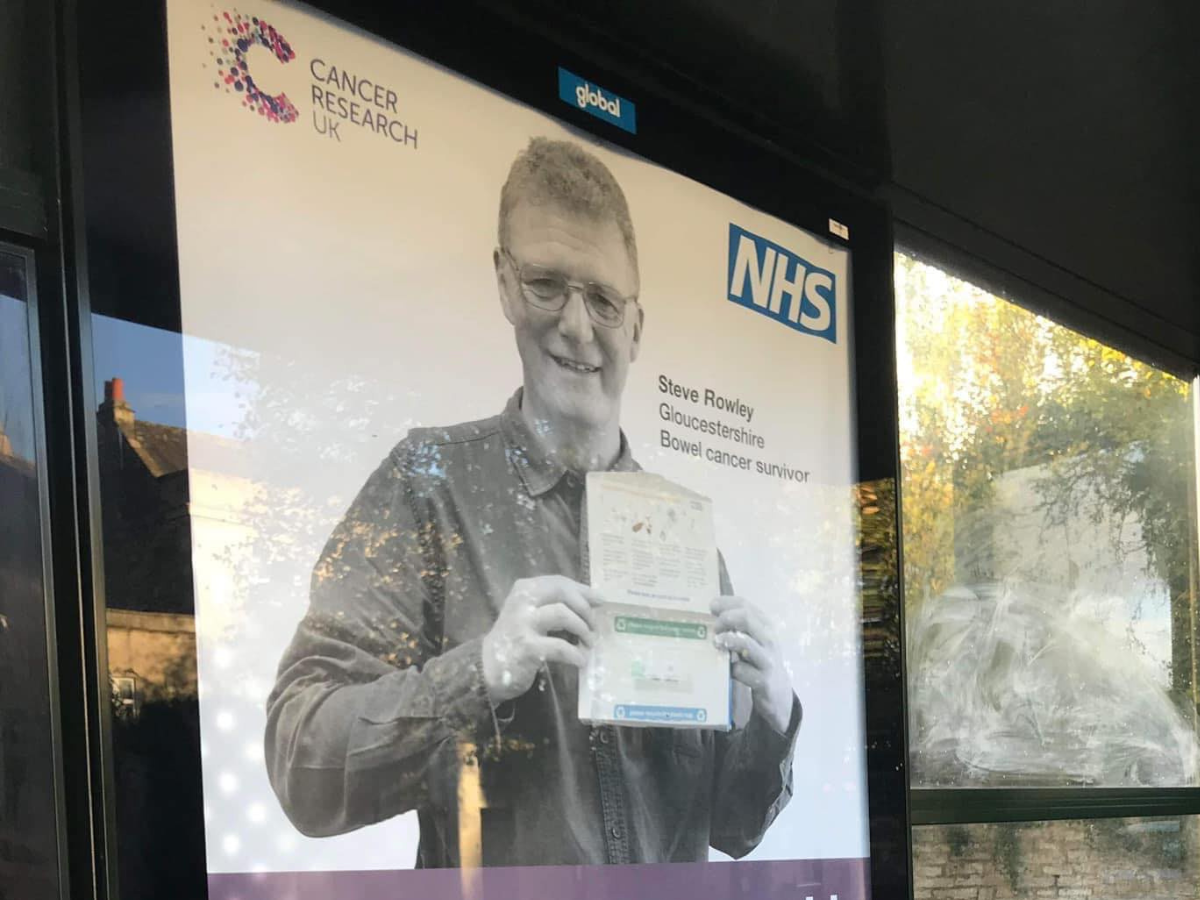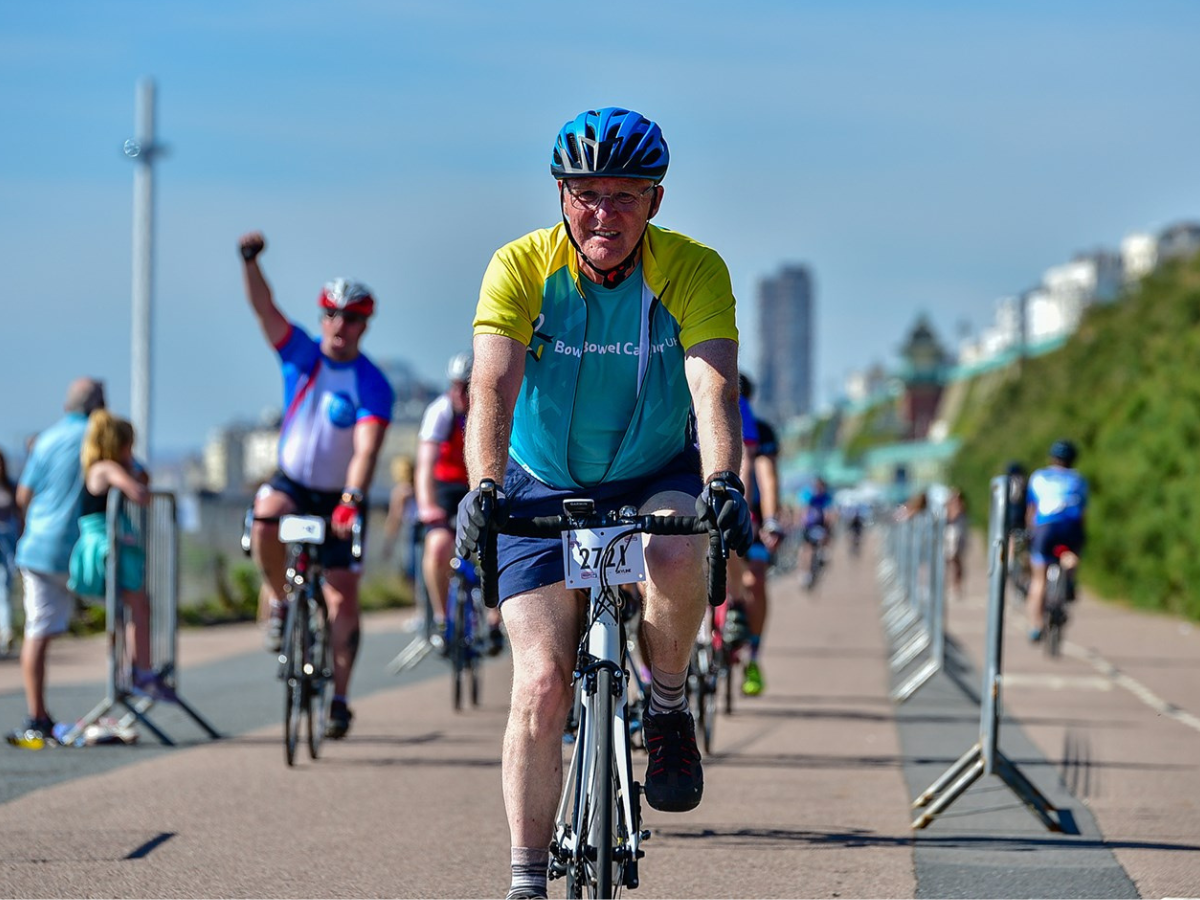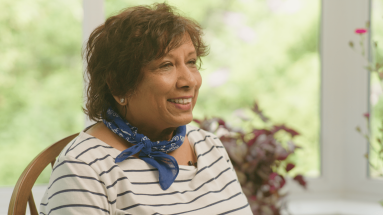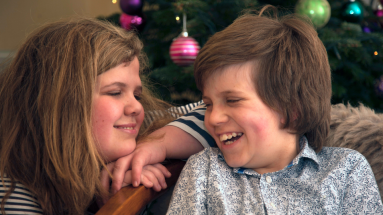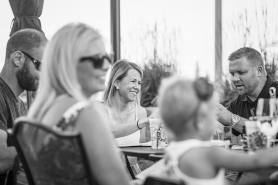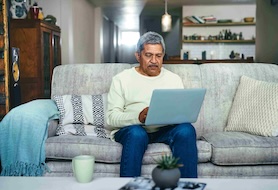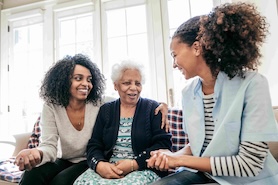Stephen’s story: The power of advocacy in the face of cancer
Stephen, from Gloucestershire, was diagnosed with stage 3 bowel cancer in 2015, aged 59. His brother Damon was diagnosed with the same condition in 2018, and sadly passed away within 6 months. Steve is now an advocate for people living with bowel cancer across the UK and Europe. Here’s his story of living with cancer.
I thought it was haemorrhoids, but within a week I knew it was cancer
In 2015 I was diagnosed with bowel cancer. I was about to turn 60. I thought I had haemorrhoids, so the word ‘cancer’ came as a shock to me.
I was heartened by the colorectal nurse specialist, who said, “it’s not too bad, this is a cancer we can treat”. It was a relief, as I felt I was in expert hands.
When I found out I needed surgery, I decided to get myself fitter to help me recover as quickly as possible. In a way, this was my own cancer ‘prehab’, a service which is being increasingly offered to newly diagnosed patients across the country.
Setting mini challenges helped me cope through chemo
Following surgery, I was told I would need chemotherapy.
I’ve got a background in science, and I’ve always been an avid reader, but chemo made it harder for me to concentrate and think about complex things. I needed other ways to keep my mind occupied.
I listened to the radio a lot – it was a godsend. It was easy to listen to and I didn’t have to think about it.
Photography was something that inspired me. Exercise is very important. I would make the effort to go out and I would give myself a challenge to take some pictures every day.
I would say to myself, “I am going to walk to the other end of the village with my camera”. Then as the treatment went on, I would set myself a bigger challenge, sometimes taking my campervan out for coffee somewhere to find new locations for photography.
Chemotherapy is a double-edged sword, it kills cancer, but at the same time takes a toll on the body. When the treatment finished my fitness was at an all-time low. Fortunately, I found a rehabilitation exercise class which helped enormously.
My diagnosis encouraged me to look at my family history with cancer
After I was diagnosed, I told everyone I knew to look out for symptoms.
My diagnosis also encouraged me to look at my family history, and I found out that bowel cancer runs in the family. I encouraged my brothers to get tested.
In 2018, my brother Damon was diagnosed. He had symptoms of bowel cancer for more than a year but had difficulty persuading the doctor to refer him. By the time he was referred, the cancer was not treatable, and he sadly passed away 6 months later.
Since then, I have been a strong advocate for the importance of early screening from the age of 50 years, or even 45. Until recently, bowel cancer screening in England was available for people between 60 and 74 years. They are now bringing the starting age down to 50 years. If this had been introduced 10 years ago, my cancer could have been picked up at an earlier stage. I would not have needed chemotherapy and my dear brother would still be with us.
Bowel cancer can affect people of any age. If found early, they can be treated and have good outcomes. I’d like to see more education to help everyone look out for symptoms. In addition, encouraging the public to join the screening programme will mean that tens of thousands of people will get an earlier diagnosis and receive successful treatment.
I wanted to help people to get the information I didn’t have
When I started my treatment journey, I felt like I knew nothing about bowel cancer or even how the bowel works. As a patient, it is hard to know what questions to ask when you don’t know what you don’t know.
After my own experience, I wanted to help people get the important information that I didn’t have access to, and to know where they could find support – not only during treatment, but after it too. Support dwindled to nothing once I finished treatment, even though I was still feeling the impact of what I’d been through. So, I got involved in organising local rehabilitation classes, inspired by the one that had been such a help to me. Soon after I volunteered to set up a bowel cancer support group.
We planned to launch the group in early 2020, but then COVID-19 intervened and an in-person support group was no longer an option.
I knew we needed this group more than ever, because COVID-19 was not going to stop people getting cancer. I decided to set up a website and Facebook group instead of a traditional face-to-face group. This was a very logical step for me as I have more than 35 years’ experience of facilitating online communities.
I wanted to create a community where people living with bowel cancer all over the country could help one another by sharing their experiences. By summer 2023 Bowel Cancer Support Group UK had 4,000 members.
As a cancer patient, my science background has helped me enormously. The more I learn about cancer, the more I realise the importance of making information available in an accessible form for all patients.
There is a huge need for health education so people with cancer can talk to their doctors about their options and truly make ‘informed’ decisions about their own treatment. Not everyone has a scientific background, but through support groups they can access information they need and feel empowered to ask the right questions when they meet the consultant.
I will continue to advocate for a future where people living with cancer can shape their own care
I am happy to say that I am now in remission, meaning there are no signs of cancer in my body. I am aware that I am at risk of having bowel cancer again, but I also know more about the disease and its symptoms now than I did in 2015.
8 years on and I still go to cancer rehabilitation exercise classes twice a week. I try to get my 10,000 steps a day, and I have changed my eating habits for a healthier diet. All of these are good cancer prevention measures. They also reduce the risk of recurrence.
I continue to advocate for a future where patient voices shape cancer care, to help people to learn more about bowel cancer and have access to the kind of information I wished I had available when I was diagnosed.
Stephen's support group is called: Bowel Cancer Support Group UK.
PP-UNP-GBR-5241 January 2024


